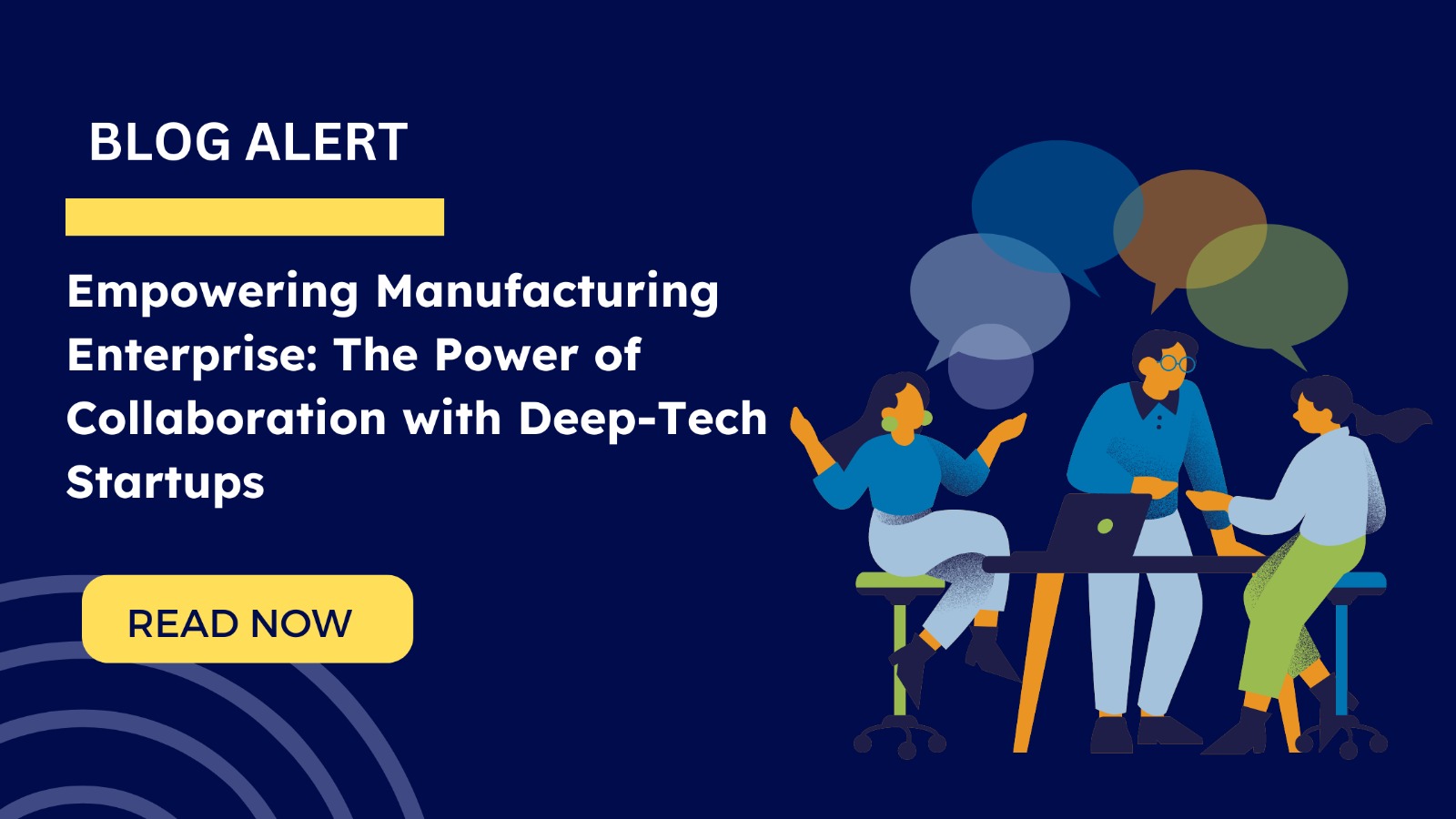Empowering Manufacturing Enterprise: The Power of Collaboration with Deep-Tech Startups
Large manufacturing enterprises form a substantial part of the global economic landscape. Over the years, this sector has seen significant transformations. The advent of Industry 4.0, characterized by the integration of automation, data, and interconnectivity, has marked a shift from traditional manufacturing practices to more streamlined, efficient processes.
Embracing the Digital Revolution in Manufacturing
McKinsey reports that businesses employing Industry 4.0 technologies have seen up to a 50% reduction in machine downtime and a 20-50% decrease in inventory carrying costs. This transition has not been without its challenges, though. Large manufacturing enterprises face a myriad of obstacles in their quest for operational efficiencies, such as the implementation of new technologies into existing infrastructure, the acquisition of specialized skills, and the protection of digital systems from cyber threats. Hence, the importance of strategic partnerships and collaboration becomes paramount in navigating these hurdles and fostering innovation
Leveraging the Power of Deep-Tech Startups
The advent of deep-tech startups has opened up new avenues for manufacturing enterprises to overcome their operational constraints. These startups, armed with disruptive technology, are in a unique position to address critical issues such as process optimization, waste reduction, and predictive maintenance. Through strategic partnerships, manufacturing enterprises can tap into these innovations, integrating them into their existing operations to drive productivity and improve their bottom line.
However, it’s not merely about employing new technology; it’s about fostering an ecosystem where co-creation and collaboration thrive. In this context, deep-tech startups can play a pivotal role. Their agile nature, combined with their focus on cutting-edge technology, positions them as ideal partners for large manufacturing firms looking to stay ahead of the curve.
Finding Right Strategic Partners
Despite the apparent benefits, the path to fruitful collaboration is not without its challenges. Finding the right startup that aligns with a manufacturing enterprise’s goals, culture, and operational needs can be a daunting task. The process involves assessing potential partners on various fronts such as technical competence, financial stability, and scalability, among other factors. In addition, enterprises must also consider the compatibility of the startup’s solution with their existing infrastructure.
As the digital age continues to impact manufacturing, having a strategic partner to guide the digital roadmap can be invaluable. Transitioning to new technologies requires more than just investment; it involves a holistic approach that includes understanding the market dynamics, integrating solutions seamlessly into existing operations, and future-proofing the business model.
Fusion 4.0: Driving Innovation In Manufacturing Enterprise
Several large manufacturing enterprises have found a valuable ally in the NASSCOM Centre of Excellence (CoE). Through their strategic use of the CoE platform, these enterprises have embarked on transformative journeys, enhancing their digital capabilities, and driving operational efficiency.
At the heart of this transformation is the Fusion 4.0 program. But it’s more than just a platform for connecting enterprises with deep-tech startups.
Under the aegis of the NASSCOM CoE, enterprises not only gain access to a robust network of technologists, researchers, and startups, but they also avail themselves of a partner invested in their success. This relationship empowers enterprises to confidently navigate the challenges of a rapidly evolving industry landscape, secure in the knowledge that they are supported every step of the way.
In conclusion, leveraging the Fusion 4.0 program and NASSCOM CoE ecosystem can help large manufacturing enterprises navigate their innovation journey. In this future-forward scenario, embracing such partnerships is not just an option but a necessity for staying competitive and driving innovation in the manufacturing landscape.












